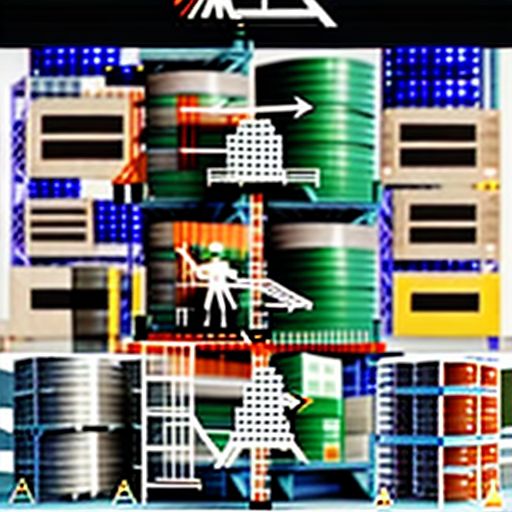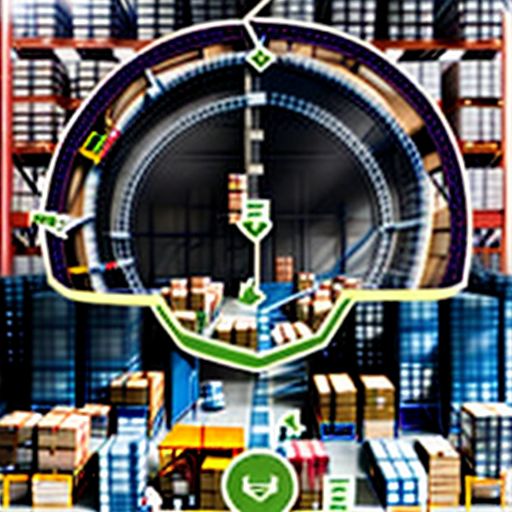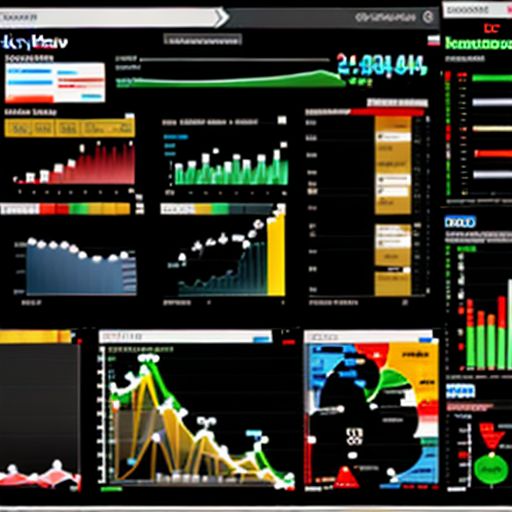In today’s interconnected world, businesses rely on a complex network of processes and partners to get their products into the hands of consumers. This intricate web is what we call the supply chain, and managing it effectively is crucial for success. But what exactly does supply chain management refer to, and why is it so important?
Understanding Supply Chain Management
Supply chain management (SCM) is the strategic coordination and management of all activities involved in the flow of goods, services, and information from raw materials to the end customer. It encompasses everything from sourcing raw materials and manufacturing products to warehousing, transportation, and delivery.
Imagine a company that makes smartphones. Their supply chain includes:
- Sourcing components like screens, processors, and batteries from various suppliers.
- Manufacturing the smartphones in factories.
- Warehousing the finished products.
- Distributing the smartphones to retailers or directly to customers.
- Managing returns and providing customer service.
Effective supply chain management involves streamlining and optimizing each of these steps to:
- Reduce costs
- Improve efficiency
- Enhance customer satisfaction
- Gain a competitive advantage
management.daohocthuat.com/wp-content/uploads/2024/07/supply chain management visualization-66908d.jpg" alt="Supply Chain Management Visualized" width="512" height="512">Supply Chain Management Visualized
The Importance of Effective Supply Chain Management
Why is supply chain management such a hot topic in the business world? Let’s explore its significance:
1. Meeting Customer Demands
In today’s fast-paced market, customers expect products to be readily available and delivered on time. A well-managed supply chain ensures that businesses can meet these demands efficiently, leading to higher customer satisfaction and loyalty.
2. Cost Optimization
By streamlining processes, optimizing inventory levels, and negotiating favorable contracts with suppliers, companies can significantly reduce operational costs throughout the supply chain.
3. Risk Mitigation
Disruptions like natural disasters, political instability, or supplier issues can significantly impact a company’s operations. Effective SCM involves identifying potential risks and developing mitigation strategies to minimize disruptions.
4. Improved Efficiency and Productivity
SCM focuses on optimizing every stage of the supply chain, from sourcing to delivery. By eliminating bottlenecks, improving communication, and leveraging technology, companies can significantly enhance their overall efficiency.
Frequently Asked Questions about Supply Chain Management
1. What is the difference between logistics and supply chain management?
While often used interchangeably, logistics is a subset of supply chain management. Logistics focuses specifically on the movement and storage of goods, while SCM encompasses a broader scope, including planning, sourcing, production, and customer service.
2. What are the key components of a supply chain?
The core components of a supply chain typically include:
- Planning: Forecasting demand, managing inventory, and scheduling production.
- Sourcing: Identifying and selecting suppliers, negotiating contracts, and procuring raw materials.
- Production: Manufacturing, assembling, and packaging products.
- Logistics: Warehousing, transportation, and delivery of goods.
- Returns: Managing product returns and providing reverse logistics.
3. What are some common challenges in supply chain management?
Some common challenges include:
- Globalization and Increased Complexity: Managing global supply chains with numerous suppliers and geographical distances.
- Demand Volatility: Accurately forecasting and responding to fluctuating customer demands.
- Supply Chain Disruptions: Mitigating the impact of unexpected events like natural disasters or political unrest.
- Sustainability Concerns: Balancing cost optimization with environmental and social responsibility.
Conclusion
Supply chain management is the backbone of any successful business. By understanding its importance and implementing effective SCM strategies, companies can optimize their operations, meet customer demands, and thrive in today’s competitive landscape.
What are your thoughts on the evolving world of supply chain management? Share your insights and questions in the comments below!





